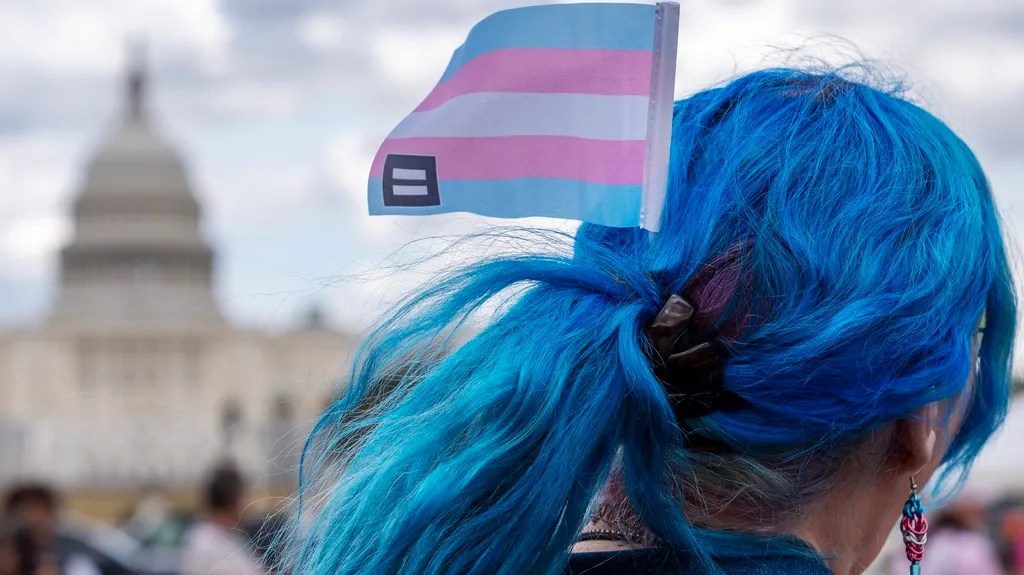June 8, 2021
How a South Florida LGBTQ Treatment Center is Turning Inspiration Into Action
Matthew Wexler READ TIME: 4 MIN. SPONSORED
This spring alone, Tennessee governor Bill Lee approved legislation that bans gender-confirming treatment for young minors, trans activist Jahaira DeAlto was murdered in her Boston home, and a new book by stef m. shuster revealed how ill-equipped many doctors are at treating trans youth. Trauma within the LGBTQ community – both historical and lived – is so pervasive it can kill. Inspire Recovery, a West Palm Beach-based LGBTQ drug and alcohol treatment, has gone into the eye of the storm to understand, dismantle and ultimately help heal those facing what appear to be insurmountable barriers. With perseverance and support, sobriety becomes a new way of living and one where anything is possible.
"I was working with detox and treatment centers in different capacities, and saw trans people going to these places were being othered, roomed by themselves, or even forced into the wrong gender," recalls Inspire Recovery's founder and CEO Donna Weinberger. "There was a pervasive lack of industry knowledge in using a trauma-informed approach for the trans community. And as a result, more trauma was happening. "After more than a decade of consulting in the behavioral health industry, Weinberger opened Inspire Recovery to provide an affirming environment for the transgender and queer community to live and recover with LGBTQ peers and an LGBTQ-affirming staff.
As Weinberger began focusing on what Inspire Recovery would look like, they zeroed in on the particular needs of the trans and genderqueer community, recognizing that many patients came from underserved communities. Often, gender dysphoria is mistreated, resulting in misdiagnosed psychological assessments. "I wanted to create an environment to understand the trans and queer experience – to help patients feel as congruent as possible to make an authentic therapy experience possible."
Inspire Recovery offers four intersectional treatment programs, each thoughtfully designed to support and empower healing and long-term sobriety. From the intensive PHP (partial hospitalization) treatment program to outpatient programs to the aftercare alumni program, Inspire Recovery helps patients understand the "why" of their addiction, unbury their traumas, and eventually move through them to develop life skills to not only survive but thrive.
Mirrors, Role Models and a Sobriety Action Plan
Inspire Recovery's program director Jaki Neering calls it as she sees it, saying, "The systems created to help people were created by and for the cis heteronormative community. So, there's been exclusion from the beginning."
As an early career social worker, Neering began volunteering at Inspire Recovery and immediately connected with Weinberger's vision and mission. She began to discover what trans-affirming treatment could look like, realizing that something as fundamental as using a patient's chosen pronouns and gender identification wasn't just polite – it was life-saving.
According to Child Trends, "youth who identify as a gender other than the one assigned to them at birth have among the highest rates of suicide, depression, and self-harm. A supportive and safe environment can significantly reduce these risks. Ensuring that transgender youth are referred to according to their identified genders, and with their chosen names, is a critical factor in establishing this type of environment."
Neering also recognized how often clients were re-traumatized in clinical settings, where the patient became the educator for untrained therapists and professionals. By deconstructing (boys wear blue, girls pink) gender and normalizing their environment, a client with an alcohol or substance addiction can begin to unpack the historical shame, let go of the persona they've built over the years to protect themselves, and finally step into their authentic selves.
Inspire Recovery clients participate in a thorough intake, which evaluates both their physical and mental well-being. A team of trained and empathetic professionals creates an addiction treatment action plan, which may include trauma therapy, gender therapy, cognitive behavior therapy, and other modalities.
The continuum of recovery is lifelong. Neering refers to our instinctual responses to mirror behaviors we see and the role models we seek to validate and inspire our authentic selves. At day's end, we desire love, compassion and empathy. Facing addiction often reveals deeper, and sometimes painful, truths and traumas. Despite this deep work, Neering says, "mental health symptoms often decrease in an affirming normalizing environment."
For many patients, gender-affirming treatment turns once-elusive sobriety into something tangible. And that truly is inspiring.
Do you or a loved one need help? LGBTQ-affirming alcohol and substance treatment may be the right solution. Visit inspirerecovery.com for more information or call 561-899-6088 for more information.
Matthew Wexler is EDGE's Senior Editor, Features & Branded Content. More of his writing can be found at www.wexlerwrites.com. Follow him on Twitter and Instagram at @wexlerwrites.






